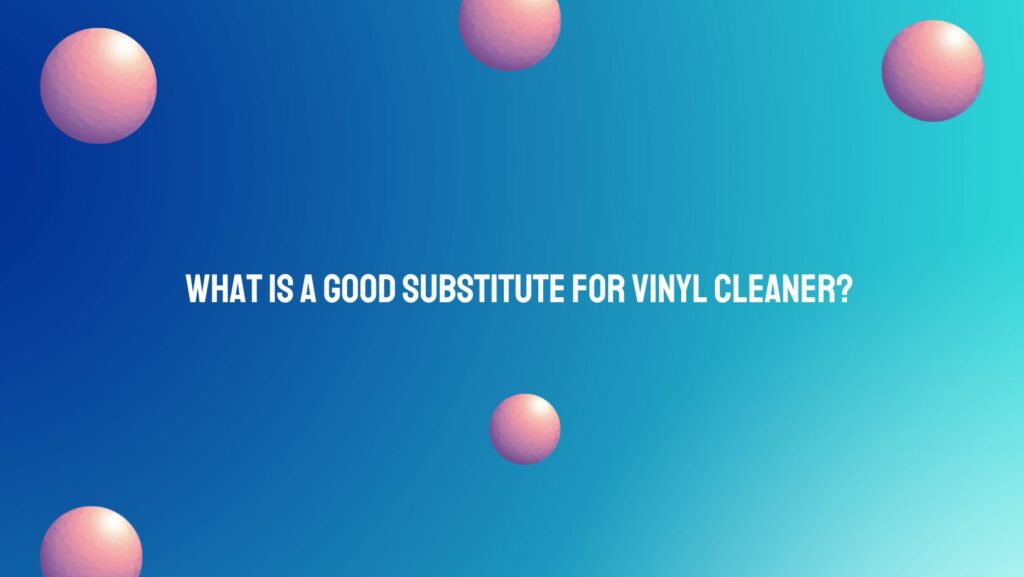Vinyl enthusiasts know that the key to preserving the integrity of their cherished records lies in meticulous cleaning. While a myriad of commercial vinyl cleaners floods the market, there are times when a suitable substitute is needed, readily available within the confines of your home. In this exploration, we’ll delve into effective alternatives that serve as worthy substitutes for commercial vinyl cleaners, ensuring your analog treasures are treated with the care they deserve.
1. Distilled Water: The Purity Paragon
In the realm of substitutes, distilled water emerges as a hero. The lack of minerals and impurities found in tap water makes distilled water an ideal candidate for gentle cleansing. A soft, lint-free cloth lightly moistened with distilled water can be used to wipe away dust and static, revealing the true brilliance of your vinyl.
2. Isopropyl Alcohol: The Cleaning Connoisseur
Isopropyl alcohol, a household staple with disinfecting properties, can be harnessed as a powerful substitute for commercial vinyl cleaners. Diluted with distilled water in a 3:1 ratio (water to alcohol), this mixture becomes a potent cleaning solution. Applied with a soft brush or microfiber cloth, it effectively removes grime without compromising the integrity of the vinyl.
3. Mild Dish Soap: The Grease Fighter
The kitchen comes to the rescue with mild dish soap, known for its grease-fighting abilities. A drop or two of this gentle cleanser mixed with distilled water creates a homemade vinyl cleaning solution. Applied with a soft brush, it delicately breaks down contaminants on the surface of your records.
4. White Vinegar: The Stain Whisperer
White vinegar, a versatile household ingredient, proves its mettle as a stain remover for vinyl records. A mixture of white vinegar and distilled water, when applied with a soft brush, becomes an effective solution for tackling stubborn stains. Thorough drying ensures no lingering vinegar scent.
5. Microfiber Cloth: The Silent Sentinel
In the absence of commercial cleaners, a microfiber cloth stands as a trusty companion. When used on its own, this gentle fabric is effective in removing surface dust without the need for additional solutions. A soft wipe in the direction of the grooves can be a quick and easy routine maintenance method.
DIY Cleaning Process:
- Prepare the Cleaning Solution: If using a cleaning solution, combine distilled water with isopropyl alcohol, mild dish soap, or white vinegar in the appropriate ratios.
- Apply the Solution: Lightly apply the cleaning solution to the record’s surface using a soft brush or microfiber cloth. Ensure even coverage without saturating the vinyl.
- Gentle Brushing: Employ a soft brush to gently traverse the record’s surface, following the direction of the grooves. This action helps dislodge dirt and grime without risking damage.
- Wipe and Dry: Wipe the record with a clean, dry microfiber cloth to remove excess moisture. Allow the record to air-dry completely before returning it to its sleeve.
Conclusion:
In the pursuit of vinyl care, resourcefulness often prevails. The household alternatives mentioned here, whether distilled water, isopropyl alcohol, mild dish soap, white vinegar, or the simplicity of a microfiber cloth, all have their roles to play in maintaining the longevity and fidelity of your vinyl records. By adopting these effective substitutes, you embark on a journey of analog stewardship, ensuring that each play delivers the sonic brilliance that makes vinyl a timeless medium for music connoisseurs.

